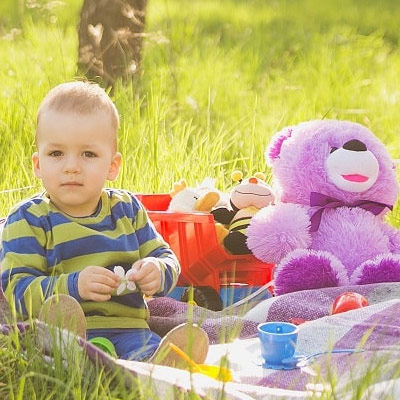Chess is a game of concentration and strategy. There is no luck, no chance roll of the dice. It teaches children valuable skills in critical thinking, planning ahead, and sportsmanship. And from a grown-up’s perspective, it’s a lot more fun than playing Pokémon cards or Sorry.
Here are some of the steps that I found helpful in teaching my son to play chess:
Names and Moves
The first thing that we did was take each piece out of the bag and learn the correct name (eg “Knight”, not “Horsey”) and how they moved. We improvised a little game of just moving the pieces around the board in the correct fashion, adding new pieces along the way until he could utilize all of them correctly.
Play the Game
Next we started playing the game with all the pieces. On Max’s turn, I would help him to look over all his options and select a safe move. On my turn, I would explain what I was looking at and why I chose to make the move that I did.
Handicap
The next step is playing the game with certain alterations. We have three ‘house rules’ that make the game more competitive:
- Max is always white. Not a big deal, but he gets to go first and that gives him a little edge.
- I give up my Queen. I found that even when playing passively, my Queen will keep Max on the defensive. By giving up this piece, I level the playing field a little and Max is learning to attack.
- Max gets three “take backs” per game. It’s like a mulligan in golf. Three times during a game, Max can take back his previous move when he sees how I will react (usually, all three times are used because he leaves his Queen vulnerable to my attack).
Learning to play chess is a valuable skill for children to develop. By following these guidelines you can help your child maintain interest while increasing his or her skill. As they improve, you can adjust the conditions to keep the game challenging yet encouraging.










